Recent years, the demand for mirrorless cameras is growing rapidly, to which all of the major manufacturers of photographic equipment responded to the release of their compact system. The youngest of them is owned by Canon and is currently the sole representative – the camera EOS M. But it is better late than never! The engineers had the opportunity to analyze the shortcomings of rival models and make your camera better. How they did it – read our review.
Design
The camera body is made of magnesium alloy and assembled very efficiently, giving the impression of a monolithic structure. 18-55 mm kit lens also looks safe – it is metal and virtually no backlash.
The new system uses a bayonet mount EF-M. Its diameter is smaller than the standard mount EF, but constructive allows all lenses for Canon SLR cameras with a special adapter.
On the right is the key lock the lens and AF assist lamp. On the left – a small relief projection which is not conducive to comfort grip, but prevents the device from accidentally slipping out.
One of the main disadvantages of Canon EOS M – no built-in flash. But the hot shoe provides for the installation of any modern series Speedlite flash for SLR cameras.
The top panel is also available in stereo microphone, power button and the shutter, surrounded by a ring switch shooting modes. Using a mechanical selector to choose between fully automatic shooting, video recording and all the other modes, which are set via the menu.
The camera has a 3-inch touchscreen display with a resolution of 1.04 million pixels. The images on this screen look great. The control is performed using a touch and multi mechanically, which is a significant advantage over competitive models that implement only one of the circuits.
On the back side of the device as there was a place for a separate video button, menu button, view pictures and press Info, which would display the main interface.
Placed on the sides of the original tabs to quickly put on or take off Neck strap. Under the cover of the left side hides an external microphone jack, mini-USB port and mini-HDMI.
Underneath is the tripod thread and the battery compartment. Camera is powered by a lithium-ion battery capacity of 875 mAh. The battery is small, the total charge was enough for about 250 shots and a couple of minutes of video. The data record is on the SD-card , it is installed in the slot next to the battery.
Canon EOS M is not the most compact of bezzerkalok, but still smaller than most hybrid cameras with sensor APS-C. However, the compact feel of this model is possible only with a “pancake” 22mm. On the other lenses lack a full grip handles only worsens the device.
Menu
Menu Canon EOS M inherited from the older SLR models, but, strangely enough, this interface is well suited for touch. To your taste, you can choose one of five color options indicators.
The stated sensitivity ranges from ISO 100 to 12800. As far as the upper values are justified, will show the next test.
Sensor
The basis for the system of EOS M served as a 18.5-megapixel sensor and the DIGIC 5, inherited from the SLR camera EOS 650D. Maximum image resolution – 5184×3456 pixels. By image size model from Canon is second only to Samsung NX cameras and the flagship unit Sony NEX-7.
Although automation is not able to correctly identify the white balance, the result of tests pleased. Prior to the ISO 800 noise is hardly noticeable at ISO 1600-3200 brightness appear grainy, but it copes well with the built-in noise reduction. Next, the situation is getting worse – the use of different methods of correction does not resolve the noise without loss of detail. Footage captured at the maximum sensitivity setting ISO 6400 and 12800, suitable for viewing on a computer or printed in a small format, but are unlikely to have artistic value.
Lens
As a staff comes standard lens EF-M 18-55mm 1:3.5-5.6 IS STM. Its design uses a stepper motor drive focusing provides fast and quiet focusing.
Crop factor for the camera EOS M is 1.6, based on the film frame 35 mm focal length 18-55 mm, 29-88 mm will fit.
The Optical IS works quite effectively, and in combination with high sensitivity sensor allows sharp pictures at slower shutter speed, such as in low light conditions.
In addition to the universal lens 18-55mm IS STM system for EOS M is also available aperture “pancake» 22mm 1:2.0 STM and wide angle zoom 11-22mm 1:4-5.6 IS STM. “Native” optics yet very little, but do not forget about the possibility of installing the EF and EF-S with a special adapter EF-EOS M.
Speed indicators
The burst speed of 4.3 frames / s, however, the buffer size is small – 3 frames for RAW + JPEG and 6 for RAW. When the buffer, the camera continues shooting at a reduced speed (less frames per second for RAW + JPEG), so for a variety of reports and action scenes rather shoot in JPEG, then you will have a better chance to “catch” the right moment.
Tested on 650D Hybrid sensor successfully migrated to the mirrorless model EOS M . The essence of innovation is the integration of phase focusing sensors directly into the matrix, which should lead to a higher rate of focus. In practice bezzerkalka from Canon really focuses faster than their brethren in the mirror mode, Liveview, but other hybrid cameras for speed is still slightly inferior, especially under low light.
Additional Features
When shooting a scene contrast is sometimes not enough dynamic range of the matrix itself – there are dark silhouettes or glare. For such cases, a special mode «HDR Backlight” – it camera takes 3 pictures with different exposures, and then glue them to the right one, without hard drops of light and shadow.
The ability to shoot in Full HD is already standard for advanced cameras and Canon EOS M did not exception in this respect. At a resolution of 1920×1080 recording speed is 30, and 25 frames / s for NTSC and PAL. The objects in the scene are moving smoothly, metering correctly responds to changes in light conditions. Focusing is fast, accurate and silent, which confirms the benefits of STM and the sensor Hybrid CMOS AF.
Findings
Camera EOS M was a worthy debut of young mirrorless system from Canon. The device allows you to receive high-quality, sharp pictures, take photos in low light and shoot video with a constant silent focusing.
This is a perfect replacement for the followers SLR camera EOS, as it allows the use of existing flash Speedlite, and in the case of purchase of the adapter – and a whole range of EF and EF-S.
While it is difficult to say whether EOS M in the future serve as independent technical platform for a serious upgrade, but we hope that soon there will be a series of other devices and all doubts will be dispelled.
Read another very interesting article about alternative energy of the Sun, water and air.

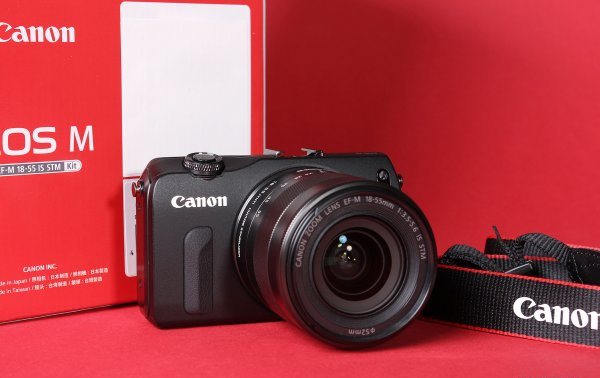

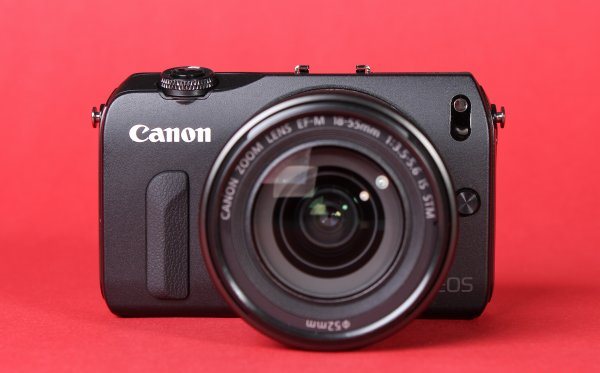
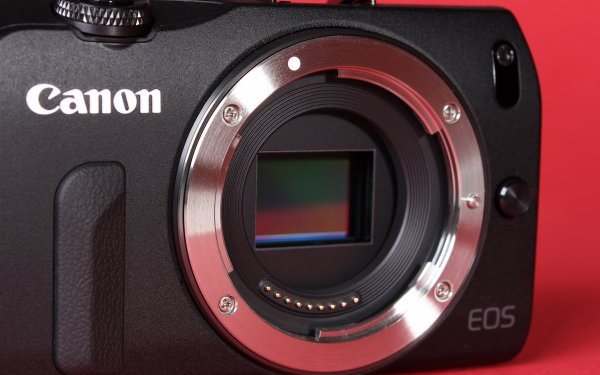
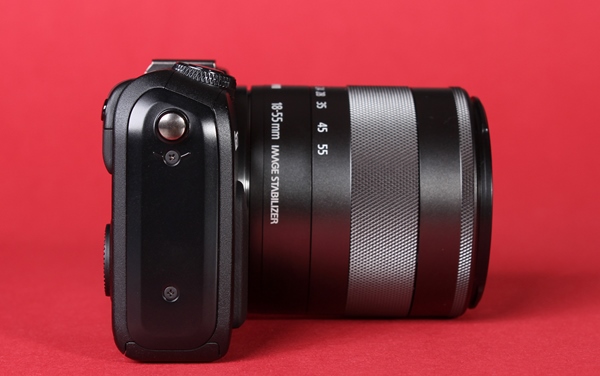

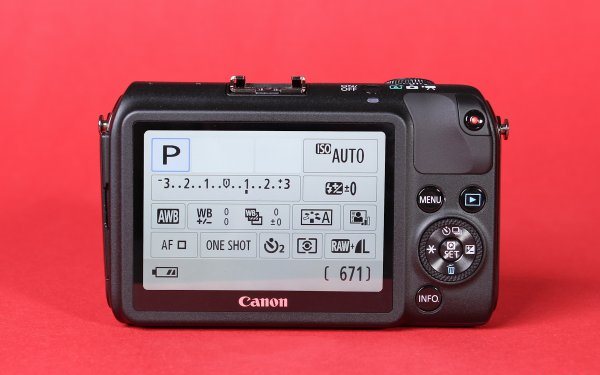


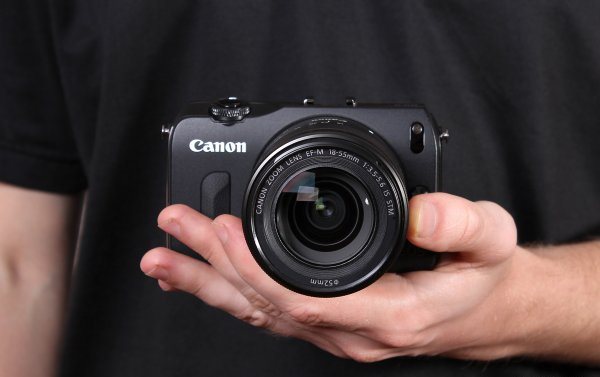


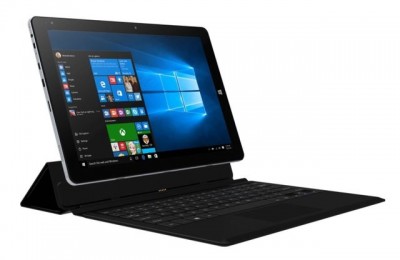
Muchas gracias. ?Como puedo iniciar sesion?